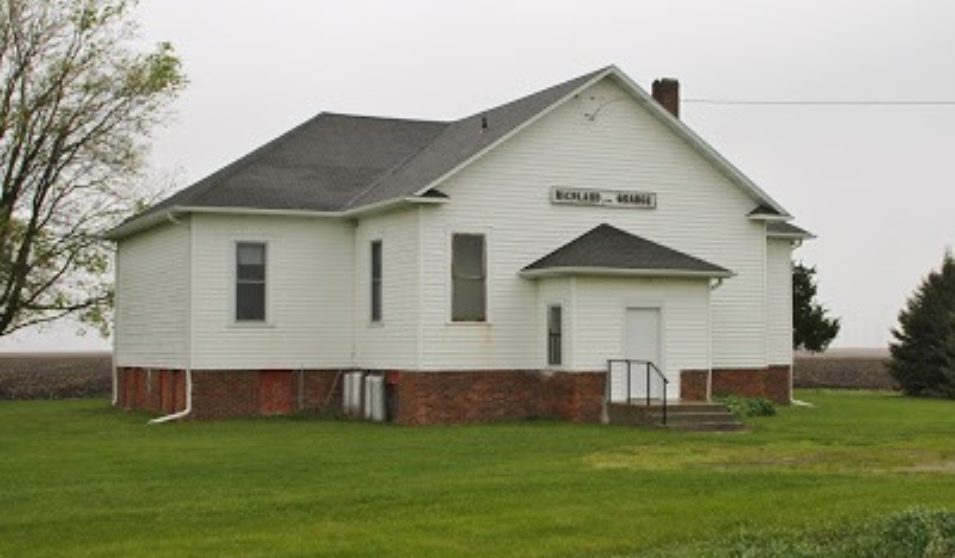Editor's Note: Paul Theobald's op/ed piece below seems an appropriate follow-up to last week's feature, The Gone Generation by Sarah Graham, which was one of the most widely read postings in our website's brief history. We often encourage folks to think otherwise, and this essay exemplifies that characteristic. Paul is the Dean of the School of Education and Exercise Science at Buena Vista University in Storm Lake, IA. He has published widely on rural education and rural school consolidation.
Every argument for any variation of school consolidation rests on two claims: 1) it will enable the district to provide a better education for students, and 2) it will save money. Those who support rural school consolidation are quick to plug these benefits.
The problem is that these benefits are perceived, rather than real. Schools, along with virtually all other institutions in American society, inevitably fall victim to a simplistic cultural standard summarized by the phrase “bigger is better.” Bigger farms are better than small ones, bigger schools are better, bigger hospitals are better, bigger cities are better, and on it goes. Because this assumption is so culturally prevalent, few people question it, even those who are adversely affected by the process of getting bigger.
Remember the movie, Hoosiers, where the diminutive equipment manager/ball player gives a classroom speech entitled “Progress”? He ends the speech with examples and includes school consolidation right up there with indoor plumbing. School consolidation has been culturally popular in this country—a circumstance that kept the actual results shielded from scrutiny. Did the students receive a better education? Did area residents receive lower tax bills?
It has only been in the last 10 to 15 years that these questions have received substantive scholarly inquiry. Back in 2005, two Ivy League professors, Christopher Berry and Martin West, citing the enormously popular twentieth-century trend to consolidate rural schools, decided to investigate the claim that students in consolidated schools received a better education than their peers in smaller, unconsolidated schools. They did an exhaustive study of high school graduates throughout the middle third of the 20th century. They discovered that students from unconsolidated schools had better college-going and college-completion rates, as well as higher lifetime earnings. The results of the Berry and West study were startling, and they opened the door to more inquiry behind the consolidation curtain. For instance, we know now, unequivocally, that small rural schools are the very best at teaching students from low SES (socioeconomic status) backgrounds. Small schools are typically defined by strong relationships that can help students outperform what their demographic categories would predict.
Do districts save money by consolidating schools? More recent studies in Pennsylvania and Indiana indicate that while they inevitably start out that way, within as few as two years, consolidated districts are outspending their unconsolidated peers. The Indiana study results were published in Newsweek a few years ago. Citing the inevitable two-pronged argument, better and cheaper schooling, researchers concluded that “consolidation fails on both counts.” A still more recent report from the National Education Policy Center in Denver demonstrated that “a century of consolidation has already produced most of the efficiencies obtainable.”
There may be other reasons to consolidate rural school districts, though I’m not sure what those might be; a better football team, perhaps. But in the meantime, it’s important for all rural people, and particularly residents from threatened districts who would surrender the heart of their communities and any realistic hope for a better future there, to know that improving education and making it cheaper are not among those reasons.
There’s always “lag time,” before new research results become absorbed and utilized. Because administrator preparation programs for decades, nearly a century, in fact, taught that consolidation was synonymous with improvement, most school administrators continue to look for consolidation opportunities as a way of defining their resolve, their commitment to kids and to education, wrongheaded though it has proved to be.
Further complicating matters, urban and suburban-dominated state legislatures are always eager to incentivize rural school consolidation. With their own children unaffected, they seemingly care little about what it will do to the lives of others.
Most rural communities are still reeling from decades of agricultural policy designed to maximize the income of agribusiness industries. Given the closed businesses, eroding Main Streets, and the outmigration of families, it seems particularly insidious to pile on with unwarranted educational policy.

We want to thank Dr. Paul Theobald (pictured here) for submitting this op-ed piece and for serving as an Advocate for the Rural Schools Collaborative. Paul also coordinates our "place-based" narrative partnership with Buena Vista University, Rural LIT RALLY and digital communications intern, Michelle Eccher.




